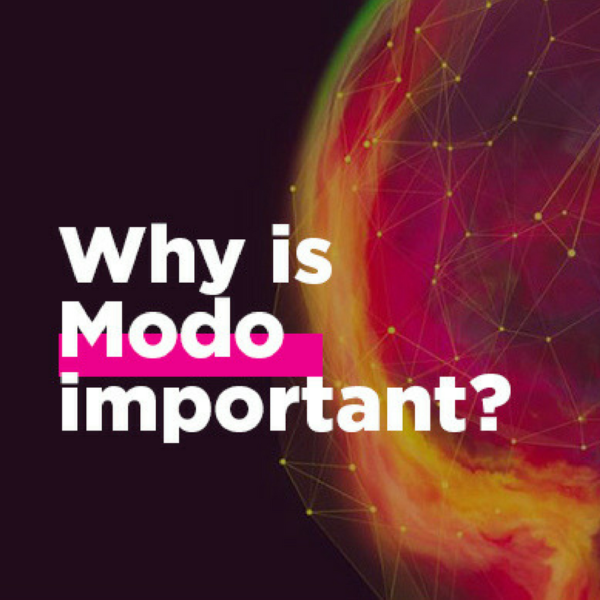
Originally posted on LinkedIn by Matthew Leavenworth
Modo is asking the right questions about the payments industry at the right time.
"Asking The Right Question is half the answer." Aristotle (384-322 BC)
Every industry sees its share of growth, optimization, and then stasis. The plateau comes from the inevitable accumulation of small friction (and/or failure) points throughout the industry. The accumulation is easy to ignore until it becomes a significant blockage to the continued healthy progress of the industry. The payments industry is experiencing this plateau now; it is struggling to reach a new growth stage but is being blocked by the weight of accumulated friction.
Why? The last 50 years of payments industry growth has generally relied on closed networks, siloed systems, and walled gardens. The inherent challenges in moving data between these “closed system” models was seen as an acceptable trade-off for the other benefits that companies, networks, and financial institutions received. As new ideas and solutions arrived in the industry, they followed the established models because it was easier to build a stand-alone system than attempt to connect dissimilar closed systems.
That approach has now generated enough friction to significantly constrain the payments industry. Growth and innovation are being sidelined or blocked completely because new systems have a hard time connecting to old, established systems. Systems that would benefit from sharing data and working together run into significant barriers to do just that.
People outside payments are all now in the age of “Open” and they have no patience for the friction of closed systems. They expect payments to work seamlessly and in real time, even if they are from different manufacturers, companies, or systems.
A Unique View of the Problem
My career has allowed me to see the accumulation of friction from just about every payment actor’s perspective in the industry. I was in the leadership organization of the Washington Mutual Debit card team when we had the largest debit card portfolio of any bank in the US. I was at Amazon when the payments team began its explosive growth from just a handful of people, and when we invented the pinless ecommerce transaction. I was at Bank of America on the consumer side responsible for generating ideas to deal with the impacts of the Durbin amendment and mobile payments. Most recently, I was at Bank of America Merrill Lynch on the commercial side as global head of strategy and innovation; our clients told us every day that global payments were too slow, too expensive, and lacked transparency (unlike their experience shipping goods around the planet).
The Right Question
Everything came together when I met the Modo team, and I realized they were asking the right question. Modo’s question, and reason for being, is: “How can we help the industry unblock unnecessary friction points and release the massive opportunities in payments?” To Modo, inventing one more wallet or payment endpoint was not the answer.
Modo’s answer is to enable interoperability of dissimilar systems, and let the industry innovate from there. An answer both humble in purpose and massive in scale.
Interoperability has been the fundamental technology shift that has transformed our lives in the last ten years. It has accelerated the speed of innovation in many industries. We see the transformation in things like the growth of the Internet, email, cloud-based services, and in the tremendous growth (and potential) of IOT. Instead of building end-to-end solutions, innovators can create enhancements or connect new functionality to existing technology, thereby leveraging systems they did not invent or control but when working together can produce something new and better.
Shouldn’t we do the same for the payments industry? I think so. The best way to truly unlock the sidelined value in payments is to have a plan for interoperability of dissimilar systems.
The Right Answer
Modo is the better, faster way to connect payment systems. The cloud based utility creates interoperability in three major steps:
- Modo works with each payment system provider to understand how their system works. Modo then maps the steps of the systems and the actions it takes to progress through the system.
- Modo creates Connectors that wrap the mapping of the payment system so the Modo Core system can interact with it in a standard way (also referred to as an “abstraction” layer).
- Modo tracks and maintains state changes and ledger updates across all systems.
By using methods where data can be exchanged between dissimilar systems, networks, and sources, Modo also eliminates the need for each company in the payments ecosystem to build one at a time direct system to system integrations. As an additional benefit, an organization using Modo’s system never needs to worry about changes to the other systems - rendering the connections through Modo virtually future-proof.
Modo’s system is intelligently designed for payments data exchange, enabling dissimilar systems to communicate. Modo also tracks all transactional data using full accounting ledgers (because payments are, in the end, all about accounting).
The Future
It is clear to me that the payments industry is limiting its potential to grow and innovate by holding on to closed models that don’t allow the industry to easily work together. A solution that addresses this problem head-on is in the marketplace. True interoperability is going to change the payments industry and bring amazing and innovative ideas off the sidelines.
That is why Modo is important.

Comments